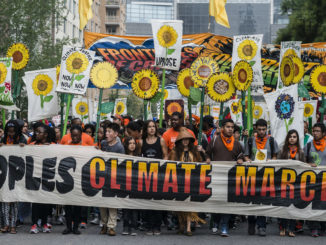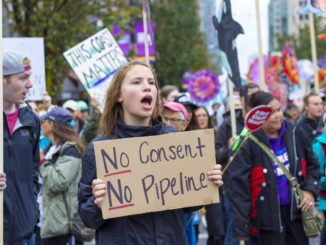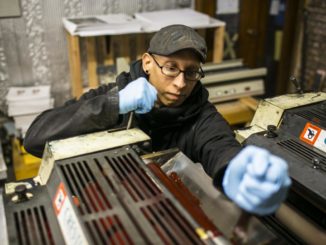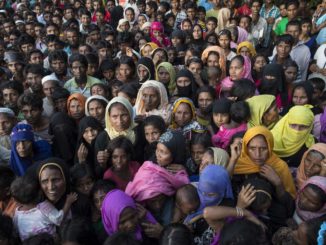
First U.S. City to Ban Fossil Fuel Expansion Offers Roadmap for Others
Portland, Oregon climate activists celebrate a win against Big Oil as city- and state-level initiatives gain momentum across the country.

Portland, Oregon climate activists celebrate a win against Big Oil as city- and state-level initiatives gain momentum across the country.

Source: Alternet
Walking into the settlement at Kennedy Road in Durban, what one is confronted with is the familiarity of the place. I’ve been here before. Not to this settlement, but to others like it. To bastis in India and favelas in Brazil, to Mexico’s Neza-Chalco-Izta to Bangkok’s Klong Toey.
The United Nation’s agency that monitors housing – UN Habitat – has said that there are a billion people in informal settlements (slums). A demographer at the UN tells me that within a few decades, he assumes that the number might easily double. In fact, he says, given how bad the data is, two billion people might already live in these kinds of vulnerable settlements. ‘We just don’t have the numbers,’ he said.

Dozens of Canadian activists hitched a bus ride from Victoria, British Columbia early on January 29th to Texas-based oil company Kinder Morgan’s terminal in Burnaby. There, they had two clear goals: to block the road to the facility and to cook some pancakes.

Source: The Nation
ICAN’s visionary work has brought us that much closer to a nuclear-free world—and won them a Nobel Peace Prize in the process.
Oslo, Norway—From the indigenous communities exposed by remote nuclear tests, to activists living in bustling cities across the globe—a new resistance is growing. Peace Organizations worldwide have joined together to stand up to the nine nuclear-armed states in the form of the International Campaign to Abolish Nuclear Weapons, known commonly as ICAN. While many have hailed them for revitalizing the nuclear-disarmament movement, their greatest achievement to date is their influence on the creation of the Treaty on the Prohibition of Nuclear Weapons. This bold new step in disarmament stands out from previous anti-nuclear movements, because it went after a comprehensive ban. While it won’t as of yet directly eliminate a single nuclear weapon, as none of the current signatories have them, many believe it will significantly alter the nuclear-weapons industry.

In dozens of cities, worker-owner cooperatives are establishing new enterprises based on joint decision-making, dignified work conditions and fair pay. Utilizing their existing skills and harnessing new ones, these groups are leveraging their labor on their own terms, with a vision to change their industries and the economic landscape. And in this rising movement, people of color, immigrants and women are leading the way.

Although the genocide of the Rohingya minority in Myanmar has gathered greater media attention in recent months, there is no indication that the international community is prepared to act in any meaningful way, thus leaving hundreds of thousands of Rohingya refugees stranded in border camps between Myanmar and Bangladesh.
Copyright Toward Freedom 2019